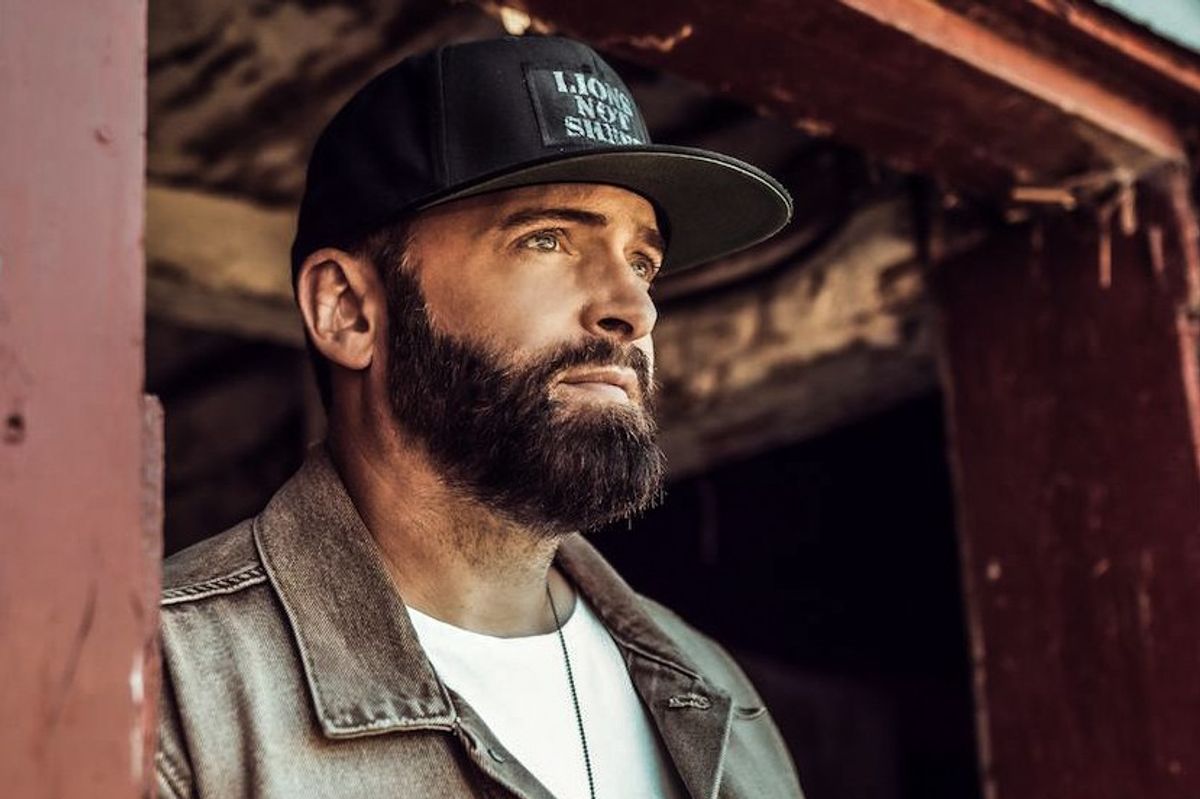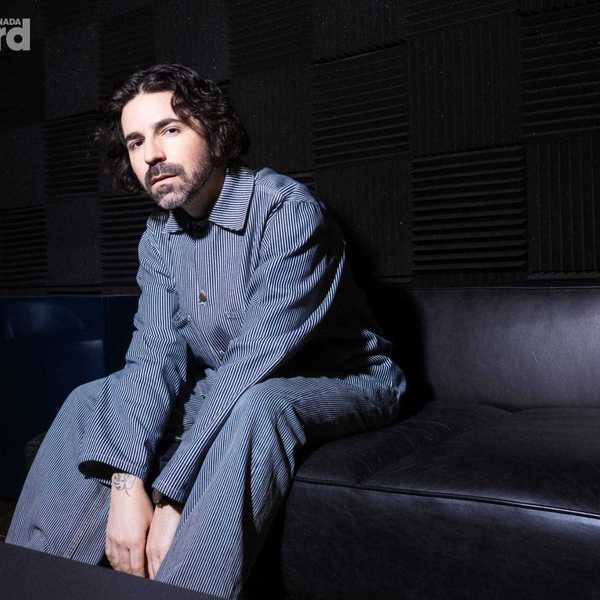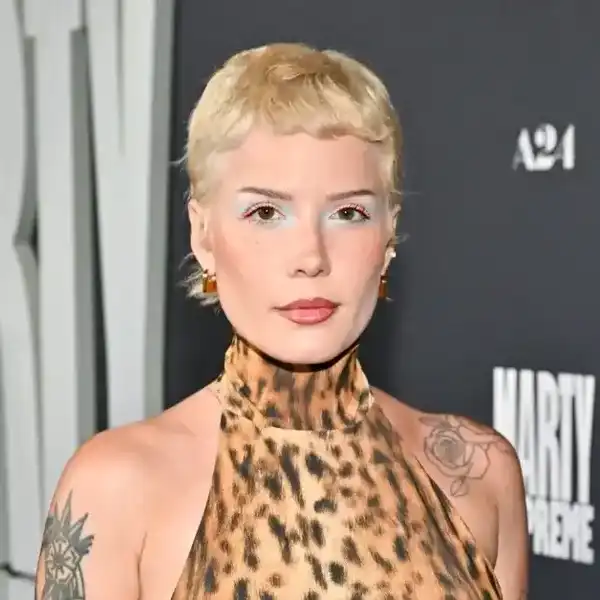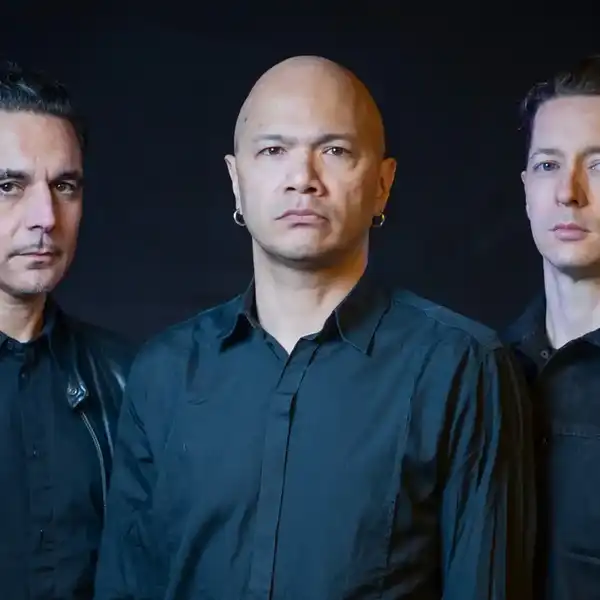A Conversation with Record-Breaking Canadian Country Star Dean Brody
A consistent hitmaker, he still finds time for award-winning humanitarian work.

Dean Brody
In the ever-expansive sphere of Canadian country music, Dean Brody is riding high into the new year, marking a significant milestone with his ninth No. 1 hit on Canadian country radio, "Right Round Here.” This latest achievement caps off a monumental year for the celebrated entertainer, as the Canadian Country Music Awards awarded him the Gary Slaight Music Humanitarian Award and he embarked on a national headlining tour. He showcased his musical prowess in small towns across Canada, delivering an intimate, full-band experience to captivated audiences.
"Right Round Here," the title track of Brody's ninth album, released last fall, draws inspiration from his Canadian small-town upbringing. Reflecting his intimate journey of love and life over the past few decades, the song encapsulates the dual meaning of being raised Right around here as Canadians — a theme that Brody has fervently pursued throughout his career.
Fans are eagerly waiting to see what's next from Dean Brody as he basks in the glow of his latest achievement. Encouraged to stay tuned to his channels, Brody hints at new music in 2024, adding another chapter to his already storied career.
In the realm of Canadian country music, Brody has had a string of achievements that have solidified his status as a multi-platinum artist. Over recent years, Brody has boasted three national arena tours, two of which broke national ticket sale records. Notably, he is the sole Canadian country artist to hold a remarkable seven-year residency at Toronto's prestigious Budweiser Stage.
In 2021, the artist secured his sixth and seventh number ones at Canadian country radio with back-to-back duets, including the history-making "Boys" featuring country music's rising star Mickey Guyton, and "More Drinkin' Than Fishin,'" with labelmate Jade Eagleson. Brody clinched his 18th CCMA Award for Top Selling Canadian Single with the No. 1 track "Can't Help Myself," featuring The Reklaws.
In 2022, he achieved his first triple-platinum single with "Bring Down The House." This milestone made him only the second artist in Canadian history to attain such status on a single. Notably, his single "Where'd You Learn How to Do That" secured his eighth No. 1.
Throughout the year, Brody shared these moments with fans through headlining performances across the country, including notable venues such as Budweiser Stage in Toronto, Festival Country Lotbinière, Dauphin Countryfest, a 10-night residency at the Calgary Stampede, and a hometown show in Fort Steele with the NHLPA.
Beyond his musical prowess, Dean Brody is a passionate storyteller and skilled lyricist. With an impressive track record of 34 Top-10 singles, including 8 #1 hits, 18 CCMA Awards, 2 JUNOs, and over 435 million global streams, Brody has left an indelible mark on the Canadian country landscape. Notably, only Shania Twain surpasses him in Canadian streams among country artists when considering "lifetime" results.
While upholding his status as a revered entertainer, Brody also devotes a significant part of his life to philanthropic efforts through his charity, The Dean Brody Foundation. Recently, he has entered a strategic partnership with International Justice Mission (IJM), a global organization that shares the core values and goals of his foundation. This multi-year collaboration aims to prevent violence and exploitation, allowing Brody to serve as an IJM Canada Ambassador and extend his decade-long fight for justice on a global scale.
In the ever-strengthened landscape of Canadian country music, Dean Brody's legacy continues to unfold, blending musical excellence with a commitment to making a positive impact on the world stage.
Where are you right now?
I'm in West Kelowna.
In the Willie Nelson documentary, Willie Nelson & Family, he alludes to country music as generations of families telling their stories – those of rural folks. Does that speak to you?
It's a massive part of our genre, the relatability. It's how we tell our story and how rural folks can understand. I think that's why I gravitated towards ‘country’ when I was younger. My first love of music is truly rock music. I wasn't a big country fan when I was young. But then, as a country boy, and as I listened to this music, I was like, I get it. I get this music. And when I'd sit down to write a song, I didn't write like a rock writer would write. I wrote stories about people and characters. I love doing that.
And you worked early on in a sawmill?
Yeah, my first job is a rite of passage for all of us guys in that small town, as we got a job at one of the three different sawmills around us or worked up in the bush. I had friends like fellers and people who did cable logging and stuff like that. It was either farming, the sawmill, or the forest industry. And mining.
I always think about Ian Tyson. My conversations with him and his stories about Alberta cowboys alone on the range with his horses bedding under the stars at night. Ian had something up close and personal to write about. You must draw on your experiences when putting words on paper.
I could draw on all the memories I had at home. As well as in Nashville. I could pull from that and make it happen. And it was easy to put myself back there and use my imagination to draw a picture through lyrics.
I'm super proud of where I'm from and the people I grew up with. I want to say they also played a big part in raising me. I think everybody in a small town or small community feels that way. Their environment helped shape them into becoming who they are. Fortunately for me, they're good people.
When you return to the early days of country music in Canada, it was basically Don Messer and George Wade, and then Wilf Carter and Hank Snow. Did your parents or grandparents play these artists in the home and say, “listen, this may be you one day?”
They would, but not necessarily, sit me down. I remember my granny always had the radio on, and so did my dad. It didn't matter if we were in the truck, house, shop or garage. He had music on, and our radio station didn't have a dedicated genre. It would play everything from Anne Murray to Gordon Lightfoot to Kiss and Metallica - kind of everything. I didn't realize there were different genres until I was probably like 12 or 13. I was like, Hey, wait a minute. Oh yeah, that's reggae, that's rock, that's jazz, that's heavy metal, that's country.
I think my mum was somewhat musical. She taught me a few chords, but my greatest influence was the radio and how it was always on all the time.
If you're in a farming community working the property, that radio plays incessantly in the background.
It's a fond memory for me. There's nothing like a Saturday afternoon when you go in the shop, dad's working on the truck, and there's music playing. I loved it.
My grandparents were Pennsylvania dairy farmers. Us boys would spend two weeks every summer on the farm baling hay, running through the fields and hanging near our uncles. That transistor radio played Ray Charles, Nat Cole and Patti Page. For me, it was a moment of spiritual significance.
Pennsylvania, man, that's amazing. That's amazing territory there. The barns out there are incredible. I remember and don't know why, but Pennsylvania has beautiful rolling hills and amazing foundations for their barns. Not just the barn, but the foundations were like stone. Am I remembering that right? When I travelled through Pennsylvania, it was beautiful and picturesque.
It's the Allegheny Mountains. And when you think about mountains, Appalachia is where much of the old-time country music is tied. The rolling hills and valleys roll from the Carolinas up into Quebec, 1,500 miles — Scot-Irish Presbyterians from Northern Ireland, Germans and enslaved Africans. The fiddle and banjo collide. The roots of early country music, ballad singing, and mountain swing. Even blues, jazz, bluegrass, honky tonk, gospel, and pop.
IIt's funny when I was a kid, I loved the Great Big Sea and Barra MacNeils. The stuff coming out of the East Coast, I found it interesting how the fiddle was part of that and how these instruments were also part of country music. That's really interesting. I hadn't done enough research — and you just shared it with me.
You're an artist today, and you've had tremendous success. With so many hits, you must look back and say, Man, I've been around for a while, and I'm still in this.
I can say I am honestly surprised. I think we're going into our 14th year to have a fan base still and people who want to come and see me, hear me, hear the band, and experience the show. It's encouraging, but it's been a journey. It's been a long story.
I'm just happy that I still get to make music and people still come out to see us play. I'm excited about the future and keep writing about that. I keep trying to tell my story and other people's stories through songs.
Does touring get any easier, and do you still enjoy it?
It's love-hate. Playing music is awesome when you are out there with your best friends. It's almost like being in college in a dorm, and you travel from town to town. After the show at night, the bus is rolling, and you're in the front lounge, watching a movie or just talking, listening to music. It's pretty cool, but it is exhausting. That's the one thing about it. We do try to play almost every night. We'll go for four or five nights, have a day off, another five nights, maybe two days off six nights. I find that part of it super exhausting, but it's definitely worth it.
What do you do at home? What happens around the house?
I don't do much, man. I've got a few hobbies that I do to keep myself busy if I'm not writing. I do some long-range shooting and MMA stuff, which keeps me busy. And it's nice to have an outlet outside of music, so I don't get too saturated with music because I have these other things I can do.
One of them is the Dean Brody Foundation. Can you share more about the work?
I started it with a friend [Matt Roper]. We weren't friends at the time, but he wrote a book called Remember Me, Rescue Me. He's a British journalist who lived in Brazil for seven years, basically telling about the exploitation of girls in many rural areas in Brazil. I read the book and contacted him and asked, “Hey, is there anything I can do? Can I help in any way?” And he's like, “yeah, let me take you there.”
He lived in the UK and moved back to Brazil full-time. We did a bunch of trips down there and met amazing people on the ground — Brazilian nationals passionate about helping these girls and kids. We now have five houses there; they're called Pink Houses, a place where girls can come for training. Much of it has to do with social issues. They have therapists and psychiatrists, attorneys who will fight for them in their local town if they've been abused. There is a mixture of different campaigns and angles we go at; it's pretty awesome. It's a safe haven for kids in the more remote, exploited towns.
You were honoured by the CCMAs and presented the Gary Slaight Music Humanitarian Award in 2023.
That was a great honour.
Is there a central theme to the album Right Round Here ?
I'd say it was a collection of songs. This next album I'm working on, I have more direction. I've always approached albums as almost song by song. I don't have a theme in my head. Honestly, the title of the album comes after all the songs have been assembled. I try to write and record stuff that's authentic to myself. If I stay true to that, I end up with an album that is cohesive, usually a lot of fun, and takes you on a little emotional journey.
"Northern Anthem," although brief, seems to reflect a moment of consideration: an emotion or experience.
I feel like we're somewhat divided as a country right now. The sentiment of that song is that we have so much in common, and there's so much beauty and history in this country and nation. It came out fast one night. I think I wrote it within 10 minutes because it's short, and I was just singing along. And then played around with it in my studio, went down to Nashville, and just tied it up. It's a song of hope, really. It's saying, hey, you know, we're one nation. We're a beautiful people. We're gentle, but we're strong. And it's an anthem. So I call it a “Northern Anthem.”
What's up next for you?
We're recording the next album. We're starting to work towards that. When an album comes out, you're already working on the second one. So right now, it's quiet, I just got off tour. Things have settled down. I'll start writing, recording, making trips to Nashville, and tying up the next record.
And you won't tour until the spring or summer?
I think it's summer. We just finished the tour almost in December of last year. We will take a break this spring and then hit the festival circuit in the summer. I might even take it easy in the fall and then tour in 2025.

















